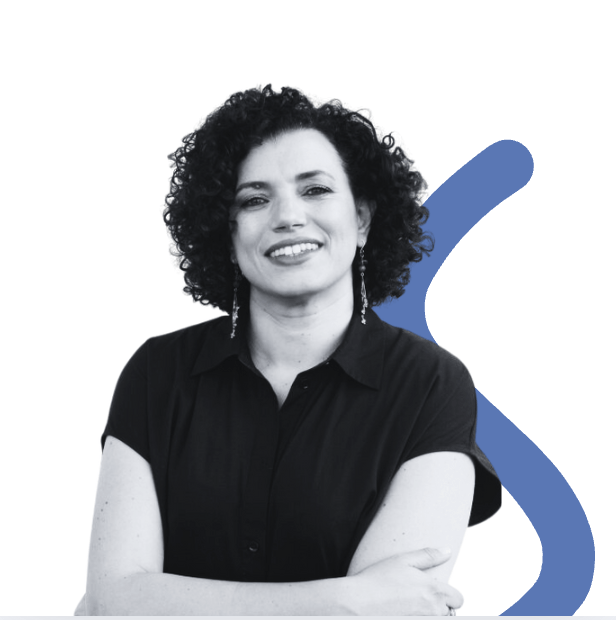Written by Inji Elabd
An existential question: should evaluators remain neutral, or should they take a stand?
When I started in evaluation, I was often told:
“Be neutral.”
“Stick to quantitative data.”
“Organisations must deliver tangible outcomes.”
I received Logical Framework (logframe) training, as one should, and reported to donors and philanthropists the tangible results they expected while maintaining a distance from those evaluated. When I ventured into social investment, I also applied cost-benefit analysis, value for money, and social return on investment—approaches designed to answer the seemingly irresistible question: what is the return to every dollar/euro/pound invested?
Until today, civil society organisations compete for funding based on how quickly they can deliver results, and whether they can deliver services to more people than their counterparts. Many philanthropic models focus on predefined quantifiable outcomes, such as “X number of people trained“, or hard-to-reach changes such as “Y laws changed“.
While these indicators may appear to reflect success, they often fail to capture the complexity of change, particularly for grassroots organisations and communities in unpredictable, restrictive, or highly marginalised contexts. They also fail to answer more important questions: Are we serving those who need it the most? Will the results we see today outlive the project/funding?
Rethinking funding and evaluation
Today, while I still understand the need for transparency and accountability, I advocate for flexible funding and trust-based philanthropy for grassroots organisations and organisations pursuing innovative approaches and working on complex issues. As evaluators, we should contribute to levelling the playing field.
Rigid philanthropic models often pressure organisations to deliver outcomes beyond their capacity, to pursue goals that are unrealistic in the short or even medium term or to reach out for the low.hanging fruit. By contrast, flexible funding allows organisations to design inclusive programmes and pursue systemic solutions.
The ability to allocate funds flexibly means that organisations can invest in their own professionalisation, including registration, securing office space, and hiring paid staff rather than relying solely on volunteers. It also allows for inclusive service delivery, such as adapting training or awareness-raising material for different demographics, making activities accessible for people living with disabilities, implementing activities in local languages, and operating in remote areas. The freedom also allows civil society organizations to adapt to emerging needs such as policy shifts, crackdowns, or natural disasters. It enables them to attend urgent needs while paving the way for long-term change.
Unlike traditional models that assume that donors know best where resources should be invested, trust-based philanthropy operates on the belief that grassroots organisations — often led by those with real living experience — are best placed to decide how to use funds. Solutions designed under this model respond to real needs instead of chasing funding trends.
Based on my experience evaluating trust-based and flexible funding models, I have seen how this approach prepares the ground for systemic change by enabling organisations to address root causes instead of responding to surface-level symptoms. It centres intersectionality by prioritising marginalised voices and enabling community-driven advocacy. It increases resource efficiency by reducing the administrative burden and allowing for better use of funds.
What about accountability?
A common critique of trust-based philanthropy is that it lacks accountability mechanisms. Funders, whether they are institutions, taxpayers, or individual philanthropists, need assurance that their contributions are used effectively and ethically. Trust-based philanthropy is not about removing all accountability, it is about replacing rigid reporting with meaningful dialogue and accompaniment and replacing tedious monitoring and evaluation tools with more suitable tools.
Pioneer grant-makers in flexible funding and trust-based philanthropy have embraced the role of long-term partners rather than distant overseers. They have invested in relationships and communication, thereby gaining a deeper understanding of the challenges on the ground and building empathy towards their partners’ day-to-day realities. Their partners feel safe to share operational difficulties and the need to adjust their work to newfound information or a shifting context without fear of losing support. Under this model, the focus shifts from transactional monitoring to working together for shared goals. The results of such partnerships sometimes surpass modest indicators set under a rigid funding and evaluation model.
Practical solutions
Some may ask: if we don’t have previously set indicators, how can we evaluate projects and programmes? This is where evaluation tools such as storytelling come in. These tools are particularly suited to grassroots organisations, freeing them to remain engaged in the field instead of spending precious time on tedious reporting requirements, and documenting changes as they emerge.
Storytelling captures deep changes at the individual level and shifts in behaviour and power structures at the community level. Storytelling gives donors, and those they are accountable to, a closer look at complex contexts. It makes the case for deeper interventions rather than superficial reach. It also amplifies local voices by allowing communities to define what meaningful change looks like, making evaluation more participatory and inclusive.
Outcome Harvesting can also be used to evaluate flexible funding and trust-based philanthropy, documenting both intended and unintended outcomes in a structured way; nevertheless, it requires more training to be used adequately.
The future of philanthropy should not be about controlling impact through rigid metrics—it should be about nurturing transformation through trust, flexibility, and meaningful evaluation and accountability.

About the author
Inji Elabd is a Principal Consultant at Stone Soup Consulting. She joined Stone Soup in 2021. She is an economist and evaluator who began her career in evaluation in 2010. Before working as an independent evaluator, she supported social innovators and worked in international cooperation. With a foundation in quantitative methods, she later expanded her methodological toolkit to include participatory approaches, mixed methods, and arts-based methods. Her work centers on the intersection of social innovation, economic inclusion, and social justice. Her practice integrates rigorous analysis with a commitment to amplifying community voices.

